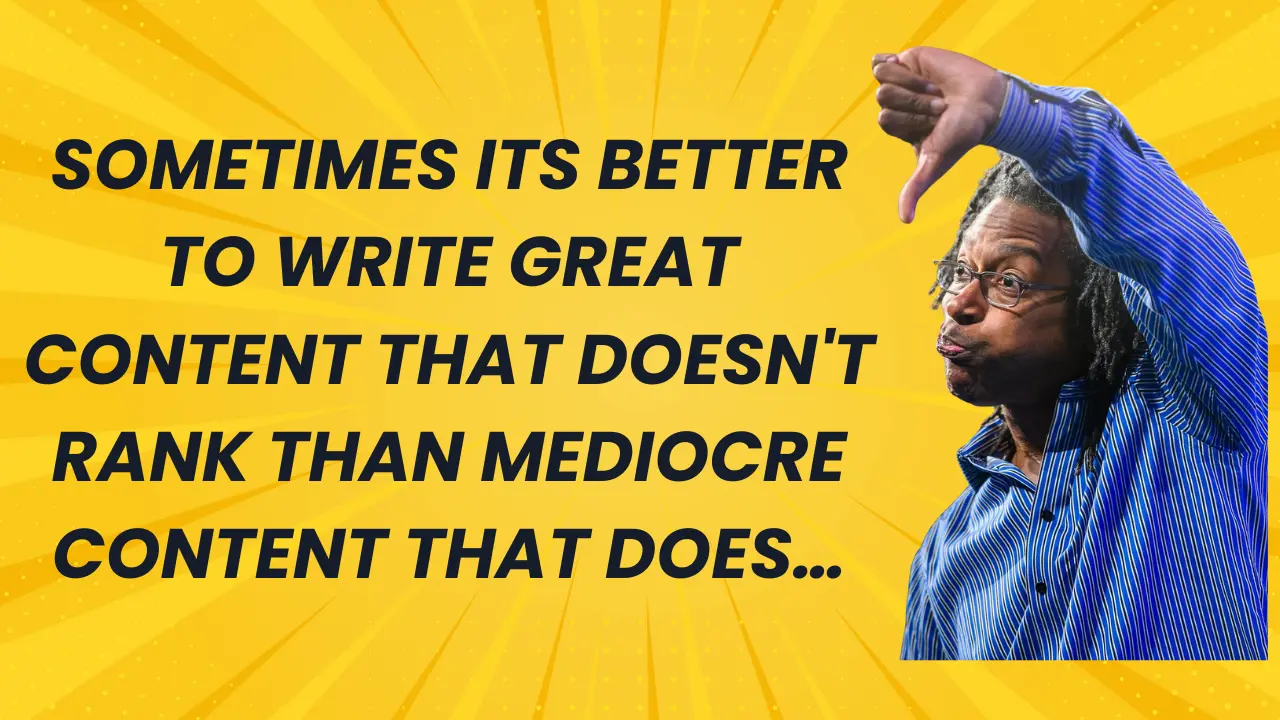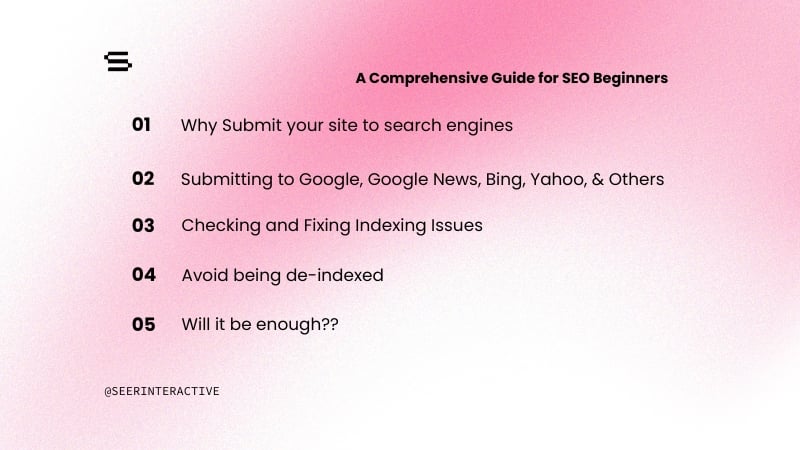Will the addition of social create the perfect search eco system? I have my doubts....
(I should preface this by saying these thoughts are my own and not representative of SEER Interactive as a whole.)
Last week I began writing this post based around something Rand Fishkin said in his article about buying blogs:
"Google's webspam team has all the incentive, brainpower and money in the world, yet their bets seem to be centered firmly on Google+ and the social graph eventually subsuming the "natural" results with those biased to what our friends and connections share/+1."
Then Yesterday, SEER CEO Wil Reynolds posted an article on SEOMoz discussing the truth about engagement and value vs. backlinks when it comes to rankings. Using examples of search results in the SEO industry, Wil broke down how big name SEO companies were being beat by lesser known competitors who are using heavy anchor text backlinking. I thought it was a great article but I noticed a similar sentiment to Rand's opinion in the comments which was that many SEO's are looking forward to the day when social integration hits and gets rid of those pesky backlink spammers and their unfair rankings for good.
My initial reaction to this idea is that if you think "rankings spam" is bad now then just wait until social signals really play a role. The massive potential that exists for buying +1's, circle's and other social factors is quite frightening to think about.
I know, I know, it's just going to be sources from users you "trust" right? I certainly hope so but Google also tells us not to buy links and that rankings should come from quality content that is linked to naturally and not hundreds of directory links with keyword anchor text. We all know how that works out though...
What I would like to consider is, what if general +1's and gross number of users in circle's become a significant factor in the ranking algorithm?
I think the SEO community is as close to as perfect an example as you can get for an area where social integration will have a net positive effect on search results. It is important for us to stay engaged and on top of what is going on in the industry. We read articles to improve our skill sets and share what we know to give back and help grow our reputation's. We will +1 an article we love and add the writer to our circle's. This is one of the best examples of a fully integrated ecosystem I can think of. The only problem I see is that it might give us rose colored glasses when considering how social would actually integrate in other industries.
Who wants to +1 the site they ordered their first insulin pump from because they just contracted type II diabetes? Will most people add to circle's the author whose articles they have been reading about how to declare bankruptcy? Will a busy mom take the time to actually engage with her favorite brand of wood floor cleaner or cold medicine? These and countless other industries are valuable to consumers and benefit from search results that return quality and relevant content. They are not however something most people want to share with others. In fact I would wager that overall the majority of industries in existence do not naturally evoke social engagement.
That's why I think applying social signals as a powerful rankings factor across the board will not improve the quality of search results overall.
Facebook has over 800 million users who spend an average of 8 hours per month on the site an astounding 4x as much time as an average Google search user. Facebook is the undisputed king of social networks and for years brands have been trying to get a slice of that pie and connect with their customers.
I find it extremely interesting than that in a recent article from Ad age they reported on a study that showed over a large sample of major brands that user engagement was only 1.3%. Even more surprising is what that 1.3% represents:
"If you subtract new likes, which only requires a click and in the minds of the researchers are akin to TV ratings, and isolate for more engaged forms of interaction, you're left within an even smaller number: 0.45%. That means less than half a percent of people who identify themselves as like a brand actually bother to create any content around it." - Study: Only 1% of Facebook 'Fans' Engage With Brands
In another article on the same subject, Ad Age delves deeper into the Facebook user engagement for what they consider "sexy" brands or one's who have historically had passionate customers.
"Looking at 10 passion brands -- including Nike, Old Spice, Harley-Davidson, Porsche, Ford Mustang, Jack Daniels and Tiffany & Co. -- the researchers found an average engagement of 0.66% The average engagement for the 10 brands with the largest fan bases was 0.36%... Only one brand of the entire 200 in the analysis got an engagement level of 2%" - Even Sexy Brands Struggle With Low Engagement on Facebook
I have at least five friends who have shelled out money for a Jack Daniel's t-shirt and I bet half the SEER office has watched one of the Old Spice guy's YouTube clips. Yet these popular brands are struggling to engage users on Facebook, the site where people by far spend more time than anywhere else on the web.
If these mega brands are struggling then what hope do industries where social interaction doesn't fit have of sending Google signals of "natural" and "trusted" user engagement? If Google implements an algorithm that is looking for those signals, what will happen to the rankings of the #1 nose hair trimmer when no one wants to share that they just bought one?
Some might say that Google will show the regular organic search results and if the industry isn't social then the social part of the algorithm won't have an effect.
I would argue that it is more likely that other social factors will take up that space. If it's not users in your circle's that have made the recommendation then it may move on to the site with the most +1's or the most users in their circle's as a whole. We have already seen in the Google+ your world search many results show up on the sidebar based primarily on how many circle's they are in.
Think about the way links are evaluated now. If you are in a niche where you will never get a link from CNN, Tech Crunch, Rolling Stone or even a highly reputable blogger then who wins in the rankings? Right now in many cases it's the site's willing to buy anchor spam on hundreds of low value sites. That tactic is even winning in highly competitive niches!
So if Google makes the shift and includes a social component in their algorithm what makes you think it will work perfectly and only include your trusted sources? I think a sliding scale that starts with your most trusted sources and goes down to other options like most +1's, circle's, recent Google+ page updates, etc. is much more likely.
It would be unreasonable to try and say what weight social could have on the algorithm. Let's say for arguments sake that it is significant. What would stop me from...
- Paying a celebrity with millions of Google+ fans to add my clients page to their circle's for a large fee, dwarfing the reach of my competitors (similar to paying them for a tweet).
- Use Amazon's mechanical turk to have hundreds or thousands of people +1 a post for a few pennies each.
- Create farmed out circle accounts where thousands of people through Fiverr or other services help build up fake accounts so those accounts have thousands of followers. Then use those built up accounts to follow my clients site's improving their reach, scope and rankings. (similar to a link pyramid).
Then instead of complaining about black hats and their linking tactics SEO's will be hollering because of artificial user engagement and the rankings benefit it's causing. I can hear it now "I create quality content for my customers but I am getting beat out by best-spam-site-ever.com who's buying thousands of Google circle's and +1's, it's not fair".
The point is, the barrier to entry for social media accounts is extremely low. At least with content farms and link pyramids those people have to buy hosting, add some sort of content and backlink profile to their site before loading it up with anchor text links. With social media, anyone can join and aggregating thousands of accounts or users could very well become the norm.
At its worst, this could create a whole new resources, time and ROI suck for SEO's and our clients. Throw in the fact that top rankings would no longer be standardized making it harder to predict and judge your traffic and you have a potential nightmare.
I can easily envision a day three years down the road where SEO's are sitting around talking about the good old days when the only thing they had to worry about was anchor text linking spam.
What do you think? Will you be happy to see a full on social integration? Do you see social integration as another cost that could lead to a lower ROI for you and your clients? Am I totally off base here or am I a level 32 wizard who can predict the future?
Let me know your thoughts in the comments.
- Ryan O'Connor on Twitter




